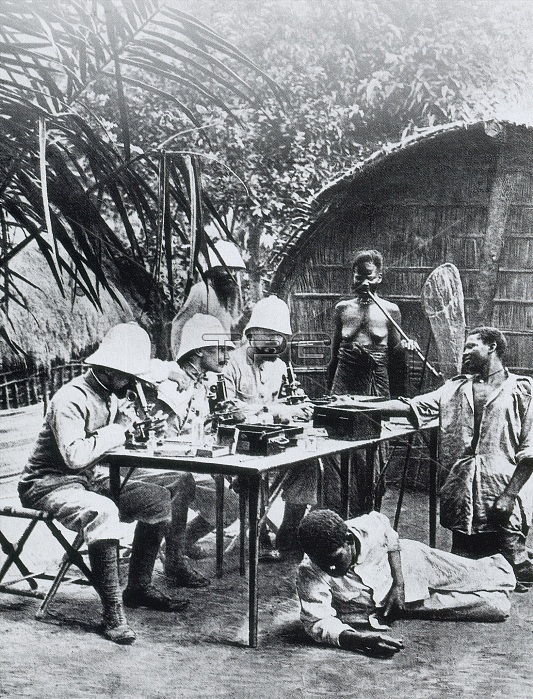
In Africa Robert Koch, seated third from left, took blood from the man reclining (infected by the tsetse fly) in an effort to isolate the microbe that caused the sleeping sickness. Koch (1843-1910), a German scientist was one of the two founders (with Pasteur) of the science of bacteriology. Using a method of staining and growing bacterial cultures, Koch became famous for isolating Bacillus anthracis (1877), the Tuberculosis bacillus (when Koch made his discovery in 1882, was still responsible for one in seven of all European deaths.) Koch's postulates are: 1) The microorganism must be found in abundance in all organisms suffering from the disease, but should not be found in healthy organisms. 2) The microorganism must be reisolated from a diseased organism and grown in pure culture. 3) The cultured microorganism should cause disease when introduced into a healthy organism. 4) The microorganism must be reisolated from the inoculated, diseased experimental host and identified as being identical to the original specific causative agent. Koch was awarded the 1905 Nobel Prize in physiology for his work.
| px | px | dpi | = | cm | x | cm | = | MB |
Details
Creative#:
TOP22159464
Source:
達志影像
Authorization Type:
RM
Release Information:
須由TPG 完整授權
Model Release:
No
Property Release:
No
Right to Privacy:
No
Same folder images:

 Loading
Loading